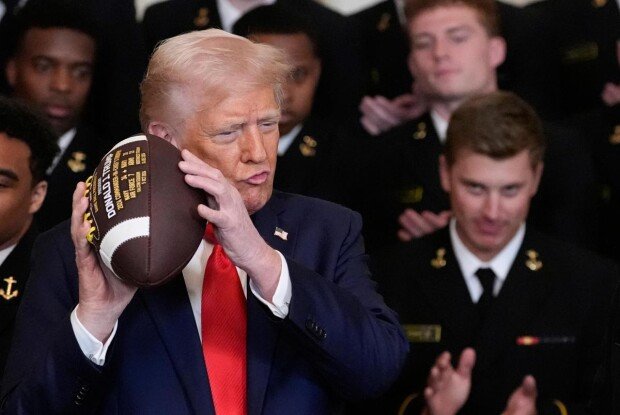U.S.-China tariff war expands to AI semiconductor sector
U.S.-China tariff war expands to AI semiconductor sector
Posted April. 17, 2025 07:26,
Updated April. 17, 2025 07:26

The escalating tariff war between the United States and China has now spread into the artificial intelligence semiconductor sector. The Trump administration added Nvidia’s H20 AI chip, designed for the Chinese market, to its list of restricted exports. The move fuels the ongoing technology war between the two nations. It is expected to affect not only Nvidia but also South Korean companies that are preparing for an AI investment boom in China.
According to Reuters and other international media reports on April 15, Nvidia said the U.S. government had notified the company that exports of the H20 chip to China would require a license. Nvidia added that the restriction would remain in place indefinitely. U.S. officials explained that the measure was implemented to prevent the H20 chip from being used in Chinese supercomputers.
The H20 chip was developed specifically for China after the U.S. imposed restrictions on high-performance AI chips in 2022. Its computing power is about 20% of Nvidia’s flagship H100 chip. However, earlier this year, Chinese AI startup DeepSeek succeeded in developing a generative AI model using low-end chips, which led to a surge in demand for the H20 from Chinese companies.
The U.S. government’s decision reflects growing concerns about China's rise in AI capabilities and signals that AI semiconductors are now a central tool in U.S. pressure tactics. The Financial Times noted that the H20 restrictions illustrate how Washington uses tariffs and trade barriers to increase leverage over Beijing.
On the same day, President Donald Trump signed an executive order directing an investigation into the national security implications of importing processed rare earths and related products. The move appeared to be a response to China’s recent restrictions on the export of seven types of rare earth elements. The administration was also reportedly considering further actions, including blocking indirect Chinese exports and delisting Chinese companies from U.S. stock exchanges.
Do-Young Kwak now@donga.com



![[단독]與 친명계 70여명 의원모임 결성…사실상 ‘반정청래’ 결집](https://dimg.donga.com/c/138/175/90/1/wps/NEWS/IMAGE/2026/02/10/133333054.1.jpg)



